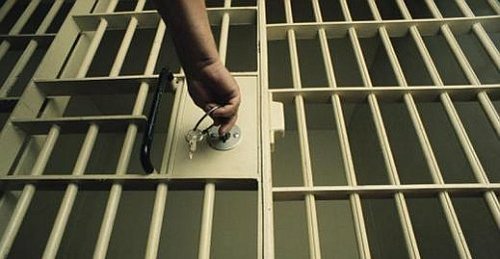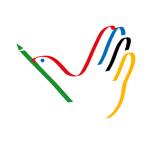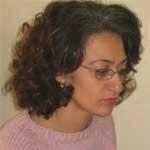Of the 125 people taken to trial for their opinions in the period of April, May and June, around half are journalists, and most cases are concerned with the "Kurdish question".
The fact that the judiciary is limiting the freedom of expression with prison sentences and fines means, and also making contradictory sentences that prevent case law from being created damages the democratisation process of the country.
The Constitutional Court has rejected two applications; one was the demand by a Şişli court in Istanbul to abolish the power of the Ministry of Justice to decide which cases under the controversial Article 301 should go to court. The second was an objection to the publication ban of newspapers for up to one month under the Anti-Terrorism Law.
Thus, two avenues for more freedom of expression have been closed.
Protests at restrictions
Many international and national bodies and organisations have become more vocal in their criticism of Turkey's Anti-Terrorism Law, the Turkish Penal Code and the Press Law: from the European Union (EU) to the Organisation for Economic Cooperation and Development (OECD), from the International Press Institute (IPI) to the Reporters without Borders (RSF), from the Turkey Journalists' Society (TGC) to the Turkey Journalists' Trade Union (TGS).
The 41-page quarterly report published by the BİA Media Monitoring Desk for the months of April, May and June shows that 125 individuals, 57 of them journalists, have been taken to court in 80 cases. Prison sentences or compensation are being demanded.
In the same period last year, 198 people, 79 of them journalists, were taken to court in 88 cases.
A total of 475 people, 181 of them journalists, are mentioned in the report, which is organised under the headings: Attacks and Threats, Detentions and Arrests, Trials of Press Freedom and Freedom of Expression, Corrections and Legal Redress, European Court of Human Rights (ECHR), Reactions to Censorship and Radio and Television Supreme Council (RTÜK) Penalties.
Contradictions
Some courts see the use of Kurdish in politics or otherwise as a "crime", while others do not. Thus, DTP politicians Ayhan Erkmen, Veli Müyken and Cemal Coşğun have not been taken to court for speaking Kurdish during the election campaign in Kars Digor, while Orhan Miroğlu has gone to the ECHR because of his conviction for the same reason.
The use of the expression "honourable Öcalan" for the imprisoned PKK leader mostly leads to convictions, yet DTP politicians Mehdi Tanrıkulu and Hasan Özgüneş were acquitted in Istanbul.
In Bursa, the use of the slogan "Lightbulb Tayyip" to describe the Prime Minister, in reference to the emblem of his party, was seen as a legitimate expression of opinion by one court, while another court sentenced five people to imprisonment.
Long detentions
15 journalists are still detained in prison, accused of relations with an armed organisation, be it the PKK (Kurdistan Workers' Party), the MLKP (Marxist Leninist Communist Party) or the clandestine ultra-nationalist Ergenekon organisation. As the trials are becoming lengthier, objections to the time spent in detention are becoming louder.
Vedat Kurşun, editor of the Azadiya Welat newspaper, has been in prison for six months, accused of spreading PKK propaganda.
Aylin Duruoğlu, editor for the Gazetevatan.com newspaper website, and Mehmet Yeşiltepe, employed by the Revolutionary Movement magazine, have been under arrest for three months, accused of membership in the Revolutionary Headquarters organisation.
Ahmet Birsin, broadcasting editor of Diyarbakır's local Gün TV station, has been in prison for four months, accused of PKK membership.
Mustafa Balbay, the Ankara representative of the Cumhuriyet newspaper, stands accused of attempting to overthrow the government in the Ergenekon investigation, while Nadiye Gürbüz, broadcasting coordinator of the Izmir Democratic Radio station, is accused of "financial relations" with the MLKP. Abdurrahman Gök of the DİHA news agency has been in prison for months, accused of spreading PKK propaganda.
Erdal Güler, editor of the Revolutionary Democracy magazine, has been in prison for one and half years, due to sentences that have been approved and ongoing trials for "organisational propaganda".
Anti-Terrorism Law
Under the current Anti-Terrorism Law, there has been systematic prosecution of demands for publications, politics and municipal services in a mother tongue other than Turkish, for referring to Abdullah Öcalan as "honourable", for criticising the state or the security forces for negligence or crimes, for publishing PKK statements, for opposing war, for conscientious objection or for criticism of people in public office.
There has been an increase in court cases opened under Articles 6 and 7 of the Anti-Terrorism Law. Twenty people are on trial: Nedim Şener, İbrahim Çeşmecioğlu, Hakan Tahmaz, Ziya Çiçekçi, Veysi Sarısözen, Abdullah Demirbaş, Leyla Zana, Ahmet Türk, Aysel Tuğluk, Selahattin Demirtaş, Ayla Akat Ata, Mehmet Ali Birand, Emine Ayna, Nejdet Atalay, Osman Baydemir, Cevat Düşün, Orhan Miroğlu and Ragıp Zarakolu.
Demirbaş has been sentenced to two years 6 months imprisonment, Baydemir to ten months, and Miroğlu to two years one month. Last year, fourteen people were on trial in the same period.
Article 301
In the three months, 18 people have been tried under Article 301, while the cases of Prof. Dr. İbrahim Kaboğlu, Prof. Dr. Baskın Oran and journalist Abdurrahman Dilipak were dropped on request of the Ministry of Justice.
However, Ferhat Tunç, Mehmet Çolak, Hakan Taştan, Turhan Topal, Ersen Korkmaz, Necmettin Salaz, Mustafa Kemal Çelik, Aytekin Dal, Mehmet Sadık Aksoy, Mehmet Reşat Yiğiz, Nedim Arslan and Mustafa Seven are still defendants in cases under Article 301.
The Police Directorate has filed complaints against Önder Aytaç, a lecturer at the Police Academy, and Emrullah Uslu, a chief superintendent officer, both writing for the Taraf newspaper.
Articles 215 and 216
As for Article 215, "praising a crime and a criminal", 15 have been tried in the three months, facing prison sentences; of these, Mehdi Tanrıkulu, Hasan Özgüneş, Özkan Tacar, Mehmet Gülmez and İbrahim Kasun were acquitted, but writer Temel Demirer was sentenced to five months imprisonment.
11 people have been taken to court for "inciting hatred and hostility", as described by Article 216 of the Turkish Penal Code. Ethem Açıkalın of the Human Rights Association (İHD) has been taken to court, and Mahmut Alınak has been sentenced to one year imprisonment.
Nedim Gürsel, author of the novel "Allah's Daughters" and lawyer Eren Keskin, who used the word "Kurdistan", were acquitted.
"Violating personal rights"
28 people, as well as the bianet website, the Hürriyet and Vakit newspapers and the NTV station, have been taken to court for "violating personal rights". They face a total of 24 years and 27 days imprisonment, as well as 1 million 390 thousand TL compensation claims.
NTV has been sentenced to paying 5,000 TL, Muzaffer Erdoğdu, publisher of the "Blue Book", translator Ahmet Güner and historian Taner Akçam have been told to pay 7,500 TL, Özgür Boğatekin from Gerger has been sentenced to 1 year, 2 months and 17 days imprisonment, Mehmet Emre Battal, Ahmet Keskin, Betül Öztürk, Hasan Özaydın and Berna Özaslan have been sentenced to 11 months and 20 days imprisonment each.
Article 318 and "influencing the judiciary"
Eight people were on trial for "alienating the public from military service" (Article 318). While Mustafa Karayay was acquitted, Yasin Yetişgen, Mehmet Atak, Oğuz Sönmez, Gürşat Özdamar, Serkan Bayrak, Cevat Düşün and Ragıp Zarakolu all still face three years imprisonment in ongoing trials.
Other journalists and individuals are still on trial for "attempting to influence the judiciary": Ahmet Altan, Yasemin Çongar, Nevzat Çiçek, Mehmet Baransu, Bahar Kılıçgedik, Başar Arslan, Sibel Hürtaş, Adnan Keskin and Adnan Demir of the Taraf newspaper, journalists Nedim Şener and Soner Arıkanoğlu, as well as three members of the Tursun family, whose son was killed with a police bullet.
Custody and attacks
According to the BIA report, two people were taken into custody and two were attacked in the three months. Three more journalists were threatened. The website of the Günlük newspaper was hacked. The attack of Rasim Ozan Kütahyalı from the Taraf newspaper by Mustafa Kayatuzu, province head of the Istanbul Alperen Hearths, has been taken to court.
Rise in ECHR applications and punishments
Turkey has been convicted of violating the freedom of expression of İsmail Kara, Ömer Bahçeci, Fikret Turan, Cihan Öztürk and Aziz Özer and has to pay 11,613 Euros compensation. In the same period last year, Turkey had to pay 8,000 Euros.
The cases of the Hrant Dink family, journalist Cumhur Kılıççıoğlu, Günlük newspaper and at least 19 other newspapers, as well as the Internet Technology Association (İNETD) which is complaining against the blocking of access to YouTube, are still at the ECHR.
The Supreme Council of Radio and Television (RTÜK) has warned many TV stations for violating the broadcasting ban on the operation against the Revolutionary Headquarters: TGRT Haber, STV, TV5, Kanal A, Asu TV, Ses TV, Ülke TV, NTV, Kanal B, Olay TV, CNN Türk, 67 TV, Bengü Türk TV, Cem TV, D Fun TV, Show TV, TV Net, Kanal Çay, Hilal TV, Ulusal Kanal, Samanyolu Haber, Kanal 7 and ATV Avrupa. It further demanded a defence from TV8 and Hak TV for repeating the violation prior to a broadcasting ban, and from Haber Türk and Fox TV prior to fining them. (EÖ/AG)














